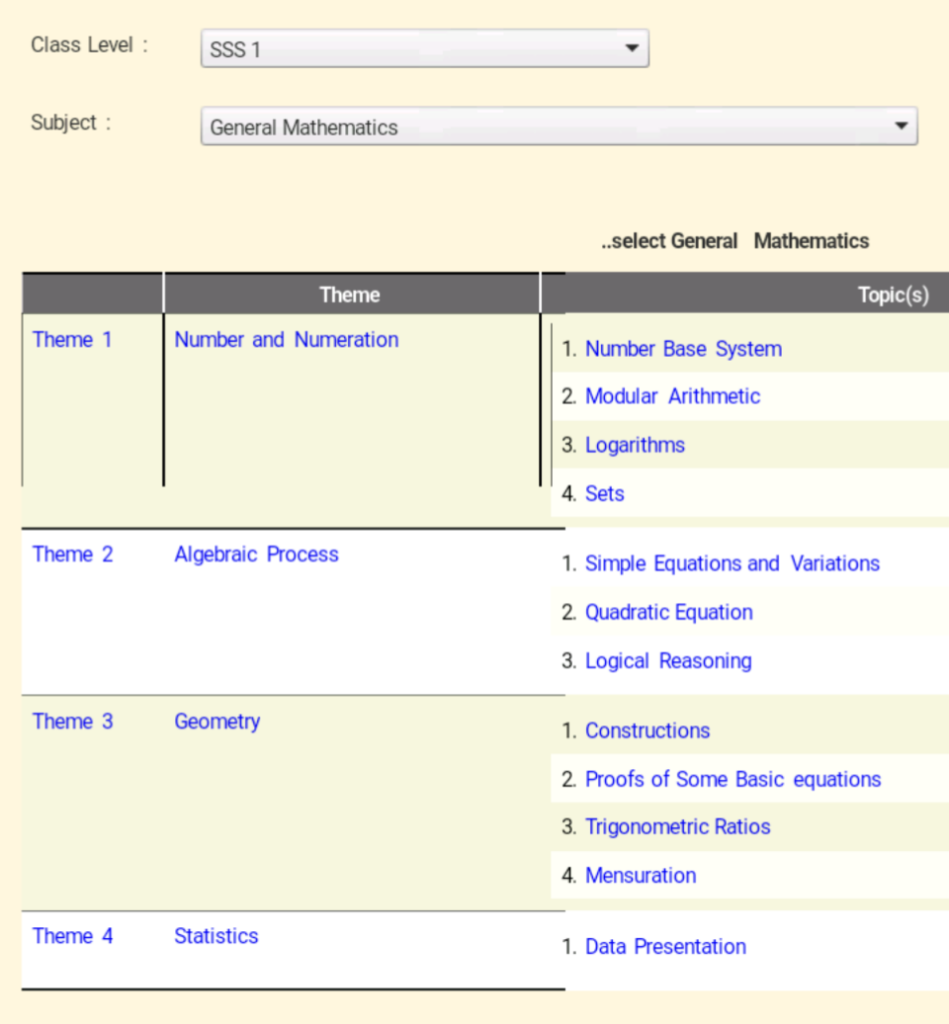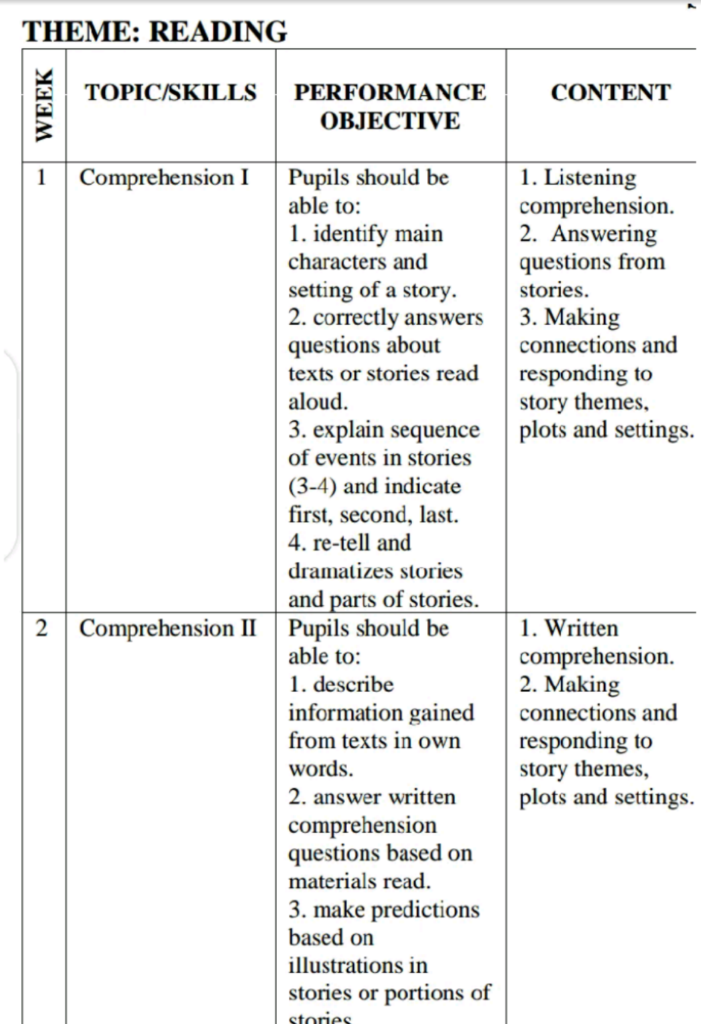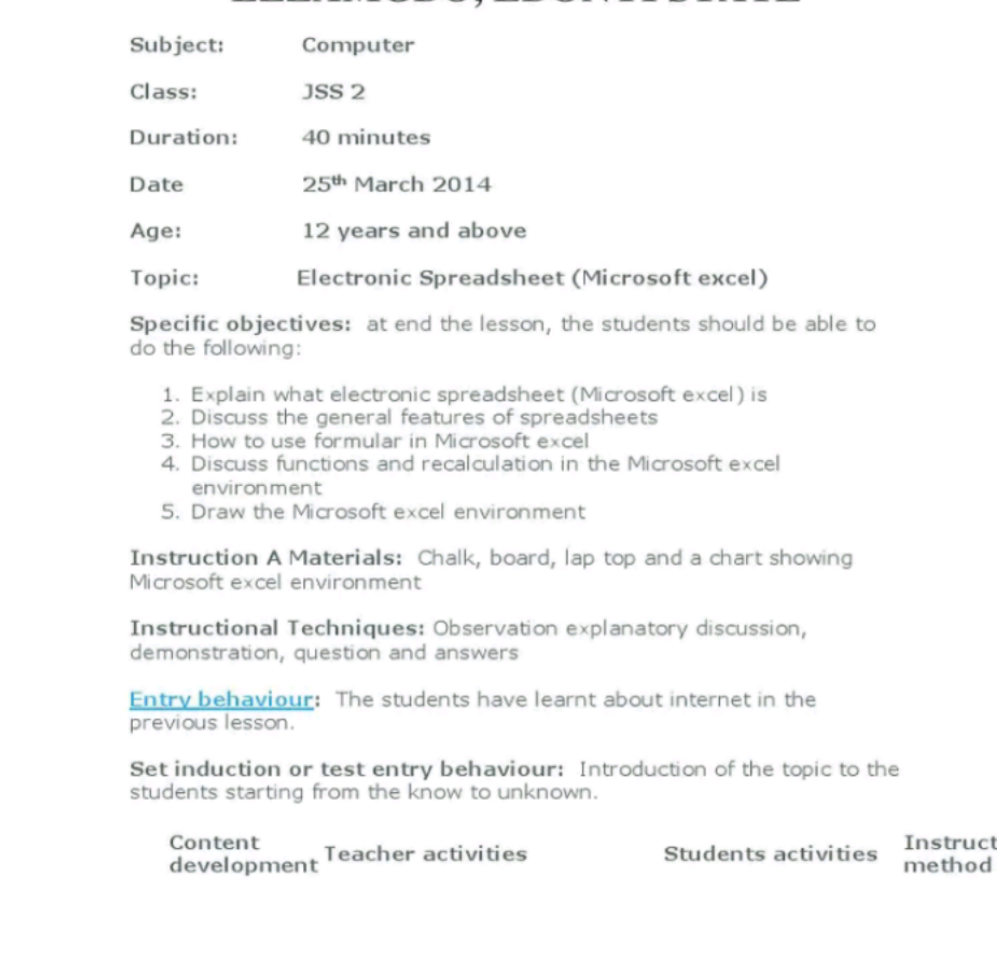Education is a dynamic process that involves various components, and understanding the fundamental aspects of curriculum, syllabus, scheme of work, lesson plans, teaching methods, and strategies is crucial for effective teaching and learning.
This blog post, will provide you the essential guides that both teachers and parents should be familiar with to support the educational journey of students.
Curriculum
The curriculum serves as the foundation of education, encompassing all school subjects, learning experiences, and activities aligned with educational philosophy and goals. It sets the tone for what students will learn throughout their academic journey. Check out Nigerian approved curriculum.

Syllabus
This a very important component of the educational structure, serves as a roadmap for academic courses. It outlines essential information and summarizes topics to be covered, to ensure clarity for both educators and learners.
A well-designed syllabus establishes expectations, learning objectives, and assessment criteria, contributing to a more effective teaching and learning process.
Scheme of Work
Scheme of work acts as a strategic plan for classroom activities over a specific period, typically a term or session. It guides teachers in organizing and pacing lessons, ensuring a cohesive and progressive learning experience for students.
A thoughtfully crafted scheme of work enhances the overall efficiency of the teaching process.

Lesson Plan
Lesson plans, on the other hand, provide teachers with a detailed description and guidelines for course instruction. These plans are instrumental in maintaining focus, fostering engagement, and managing time effectively during class.
A comprehensive lesson plan caters to diverse learning styles, making lessons more accessible and impactful.

Lesson Notes
Lesson notes serve as a valuable tool for teachers’ self-assessment. These informal and personalized records document reflections and observations after delivering a lesson. They play a pivotal role in educators’ professional development, offering insights into instructional practices and areas for improvement.
Lesson notes contribute to a reflective teaching approach, fostering continuous growth and enhancement in teaching methodologies.
Teaching Methods
Teaching methods form a diverse toolbox for educators, covering various approaches such as discussion, demonstration, storytelling, playway, field trips, inquiry-based methods, project-based methods, collaboration, and more teaching methods.
The implementation of these methods ensures a dynamic and engaging learning environment, catering to different learning preferences and styles.

Effective Teaching Strategies
Teaching strategies are necessary for maintaining a conducive learning atmosphere.
- Set Induction: helps capture students’ attention and create interest at the beginning of a lesson. Establishing an appropriate frame of reference, using examples and illustrations, ensures clarity and aids in better understanding. For example, a teacher teaching the topic “diabetes” in Biology, set induction may be used as “How many of you have a friend or a family member diabetes?
- Appropriate Frame of Reference: Establishing an appropriate frame of reference, using examples and illustrations, ensures clarity and aids in better understanding. Stimulus variation prevents monotony, keeping learners engaged throughout the session.
- Repetition: Planned repetition, simple repetition, space repetition, and cumulative repetition are strategies that reinforce learning through repetition at strategic intervals.
- Questions: Using questions effectively promotes critical thinking and active participation, fostering a collaborative and interactive classroom environment.
Classroom Management
Classroom management is the art of taking charge of situations inside and outside the classroom to enhance instructional purposes.
It goes beyond maintaining order; it involves creating an environment conducive to learning. The teacher, as the classroom manager, plays a key role in organizing the learning space in a way that is orderly, comfortable, and relaxed, fostering an atmosphere where learning can occur without unnecessary distractions.
This skill encompasses the delicate balance of maintaining discipline while also ensuring an engaging and positive learning experience for students.

Effective Classroom Management
Effective classroom management involves the skillful manipulation of various elements, including physical space, student behavior, and instructional strategies.
A well-managed classroom is one where students feel secure, motivated, and encouraged to participate actively in the learning process. It is a dynamic process that requires continuous adaptation to the students and the learning environment
Characteristics of a Good Teacher
A good teacher possesses a set of characteristics that extends beyond the mastery of subject matter.
- Resourcefulness: Resourcefulness is a key trait, enabling teachers to adapt to diverse learning styles and challenges.
- Professional Training: Professional training adds a layer of skillfulness, ensuring educators are equipped with effective pedagogical techniques and the ability to navigate technological advancements in education.
- Subject Mastery: Subject mastery is paramount, encompassing content knowledge, pedagogical knowledge, and technological knowledge.
- Commitment: A passionate commitment to duty is reflected in the enthusiasm educators bring to the classroom, inspiring students to engage with the material.
- Humility: Humility, humor, and honesty create a positive and relatable teacher-student dynamic, fostering an environment where learning becomes a collaborative and enjoyable experience.
- Exemplary Behavior: Exemplary behavior sets a good teacher apart, serving as a role model for students.
- Openness and Critical Thinking: encourage a culture of curiosity and exploration.
- Effective CCommunication: Effective communication skills, both verbal and non-verbal, enhance the teaching and learning process, promoting clarity and understanding.
- Record Keeper: Being a meticulous record keeper contributes to organized and efficient classroom management. Read more on the qualities of a good Teacher.
The Role of Parents in Their Children’s Education
A child’s education begins at home, and parents serve as their first teachers, playing a crucial role in shaping their character. The collaboration between home and school education forms the foundation of a student’s actual learning.
Here are a few ways parents can contribute to their child’s education:
- Be a Role Model: Demonstrate a positive attitude towards learning and showcase the importance of education through your actions.
- Read Together: Cultivate a love for reading by engaging in shared reading activities, to foster a bond while enhancing literacy skills.
- Oversee Child’s Activity: Monitor and guide your child’s activities, so as to ensure a healthy balance between academic and recreational pursuits.
- Maintain Parent-Teacher Communication: Regularly communicate with teachers to stay informed about your child’s progress and address any concerns promptly.
- Avoid Over Scheduling: Allow time for relaxation and unstructured play. This will help in preventing burnout and promote a well-rounded development.
- Provide a Pleasant Atmosphere: Create a positive and supportive home environment that encourages curiosity, creativity, and a passion for learning.
- Give Constructive Criticism: Offer feedback in a constructive manner, emphasizing growth and improvement rather than mere criticism.
- Help with Home Assignments: Assist with homework and assignments, fostering a sense of responsibility and reinforcing classroom learning.
- Prepare Them for Tests: Support your child in test preparation, instilling effective study habits and strategies for managing exam stress.
- Reward Them for Results: Acknowledge and celebrate achievements, no matter how small, to motivate continued effort and dedication. Read More 20 Ways Parents Play a Role in the Education of Their Children.
Conclusion
Mastering these fundamental concepts and strategies is important for both teachers and parents. It empowers educators to deliver effective lessons and actively engage with students, while parents gain valuable insights into their children’s learning experiences, enabling them to provide informed support at home.
Embracing these tutorials contributes to a complete and enriching educational journey for all stakeholders involved.